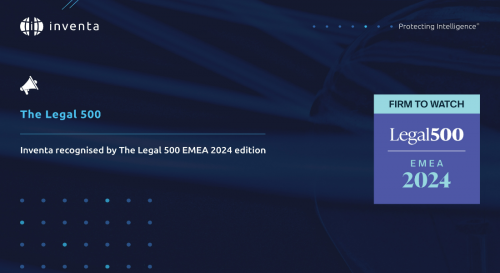
From Ideas to Industry - How IP fuels Mauritius’ manufacturing growth
In the heart of the Indian Ocean, Mauritius is not only known for its breathtaking landscapes but is also emerging as a hub for innovation within its dynamic manufacturing sector. With a keen focus on fostering a culture of innovation, the Mauritian government has taken significant steps to put the nation at the forefront of cutting-edge technologies and processes. It is in this context that various government initiatives and programs have been set up to encourage research and development, taking advantage of the favorable geographical location. The government also underlines the key role of solid intellectual property (IP) protection to encourage companies to invest in innovative technologies, ensuring a sustainable and vibrant future for Mauritius' manufacturing sector. This serves as an incentive for companies to invest in cutting-edge technologies, guaranteeing a lasting and thriving future for the manufacturing sector in Mauritius.
Growing Innovation Ecosystem:
Fiscal Incentives for Manufacturers in Mauritius:
- Eight-Year Income Tax Holiday for High-Tech Companies.
- Elimination of Import Duties on Equipment and Raw Materials.
- A 25% refund on basic freight costs for exports to eligible African ports advantages under the Freight Rebate Scheme.
- A 60% refund on air freight costs for various manufactured products.
- VAT Reimbursement on Exported Raw Materials.
- Accelerated Depreciation on Machinery.
- Tax Incentives for Research and Development (R&D).
- 10-Year Work Permit Policy for Manufacturing.
Global Market (Preferential) Access Through Trade Agreements:
- Mauritius-China Free Trade Agreement (FTA).
- Mauritius-India Comprehensive Economic Cooperation and Partnership Agreement (CECPA).
- Mauritius-Pakistan Preferential Trade Agreement.
- Mauritius-Turkey Fee Trade Agreement (FTA).
- Mauritius UAE Comprehensive Economic Partnership Agreement (CEPA).
- African Continental Free Trade Area (AfCFTA).
- United Kingdom – Eastern Southern Africa Economic Partnership Agreement (UK-ESA EPA).
- European Union-Eastern Southern Africa Interim Economic Partnership Agreement (EU-ESA iEPA).
- Southern African Development Community (SADC) FREE TRADE AREA (FTA).
- Common Market for Eastern and Southern Africa (COMESA).
- African Growth and Opportunity Act (AGOA).
- Generalized System of Preferences (GSP) Scheme.
- Indian Ocean Commission (IOC).
Opportunities for Manufacturers in the Competitive Global Landscape
Leveraging Technology Transfer:
Manufacturing companies in Mauritius actively pursue technology transfer agreements with global partners, fostering innovation and knowledge exchange. Intellectual property (IP) plays a crucial role in these collaborations, requiring clear terms and conditions to protect the rights of both parties. By ensuring transparency in these agreements, Mauritian manufacturers can access international expertise while safeguarding their IP assets.
Brand Protection and Global Markets:
Expanding into the global market, Mauritian manufacturing companies prioritize brand protection. Emphasizing trademark protection is essential, not only for visual representation but also for symbolizing quality and authenticity. Robust trademark protection guards against unauthorized use, and counterfeiting, and preserves brand identity, enhancing the companies' reputation and competitiveness on the global stage.
Challenges and Solutions:
Despite growth opportunities, Mauritian manufacturing companies face intellectual property challenges such as counterfeiting and infringement. Proactive measures, regular IP audits, and collaboration with law enforcement agencies are crucial to navigate these challenges effectively. By staying vigilant and implementing comprehensive IP protection strategies, companies can protect their assets and maintain a competitive edge.
Legal Framework in Mauritius:
Mauritius boasts a strong legal framework for intellectual property, reflecting its commitment to innovation protection. Recent updates highlight the government's responsiveness to industry needs. This commitment fosters a conducive environment for innovation and solidifies Mauritius as an attractive hub for manufacturing companies.
As for the main IP Laws applicable in Mauritius:
- Industrial Property Act 2019 (Act No. 15 of 2019).
- Copyright Act 2014 (Act No. 2 of 2014).
- Protection against Unfair Practices (Industrial Property Rights) Act 2002 (Act No. 22 of 2002).
Apart from this, Mauritius is a signatory member of the Paris Convention, since 1976 and the TRIPS Agreement, since 1995, prioritizing the harmonization of their national laws on an international level. In addition, Mauritius became the 20th country to join the African Regional Intellectual Property Organization (“ARIPO”). On 25 September 2020, Mauritius acceded to the Lusaka Agreement, which is an important step in the country’s goal to harmonize and facilitate the protection of intellectual property in the African region.
In conclusion, Mauritius is poised to thrive as a manufacturing hub by prioritizing innovation and safeguarding intellectual property. The government's initiatives, including a robust legal framework and strategic incentives, underscore its commitment to fostering a conducive environment for growth. The emphasis on strong IP protection incentivizes companies to invest in cutting-edge technologies, ensuring the sustainability and competitiveness of the Mauritian manufacturing sector. With a dynamic ecosystem that values innovation, Mauritius stands as a beacon for emerging economies seeking a blueprint for success in the global manufacturing landscape.
Territory List
There are no results for your search.
- Africa
- Algeria
- Angola
- Benin
- Botswana
- Burkina Faso
- Burundi
- Cameroon
- Cape Verde
- Central African Republic
- Chad
- Comoros
- Congo (Republic)
- Côte d'Ivoire
- Democratic Republic of the Congo
- Djibouti
- Egypt
- Equatorial Guinea
- Eritrea
- Eswatini (Swaziland)
- Ethiopia
- Gabon
- Gambia
- Ghana
- Guinea
- Guinea-Bissau
- Kenya
- Lesotho
- Liberia
- Libya
- Madagascar
- Malawi
- Mali
- Mauritania
- Mauritius
- Mayotte
- Morocco
- Mozambique
- Namibia
- Niger
- Nigeria
- Réunion
- Rwanda
- Sao Tome and Principe
- Senegal
- Seychelles
- Sierra Leone
- Somalia
- South Africa
- South Sudan
- Sudan
- Tanzania (mainland)
- Togo
- Tunisia
- Uganda
- Western Sahara
- Zambia
- Zanzibar
- Zimbabwe
- Africa (OAPI)
- Africa (ARIPO)
- Other
- East Timor
- Macao
- Maldives
- Portugal
- European Patent (EPO)
- European Union Trademark (EUTM)
- International Trademark (Madrid System)
- Patent Cooperation Treaty (PCT)




